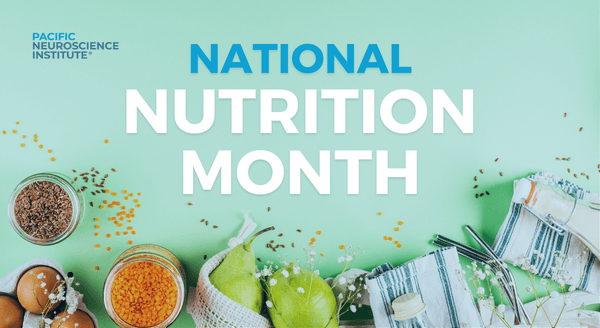
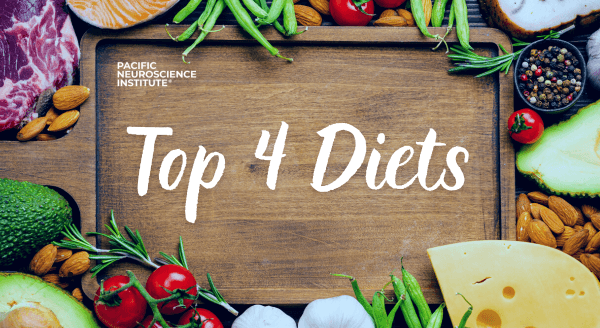
Top 4 Trending Diets: Insights from Healthcare Professionals
by Brianna Rauchman
Discover the truth behind the top 4 trending diets from healthcare and research professionals. Learn about the benefits and risks of intermittent fasting, celery juice cleanse, low-carbohydrate diet, and Mediterranean diet.
Are Trending Diets Harmful to Your Health?
As you scroll through social media, or peruse the pages in a magazine, it is highly probable that you will encounter a trending diet. Many popular diets make bold promises of rapid weight loss or improved health. Although certain diets may lead to temporary weight loss, they frequently overlook an individual’s specific needs and goals.
As such, it is crucial to adhere to diets that have scientific evidence supporting them, and to seek guidance from a healthcare professional before making any dietary changes. In this blog article, we will uncover the truth behind the top 4 most talked about diets, with expert insight from healthcare and research professionals at Pacific Neuroscience Institute®.
Diet #1: Intermittent Fasting

Intermittent fasting is a dietary approach that has rapidly increased in popularity due to its potential health benefits. This method involves alternating periods of fasting and eating, and is associated with numerous health benefits, such as weight loss, improved insulin sensitivity, and reduced inflammation.
Additionally, intermittent fasting has been shown to have a positive impact on brain health. According to Daniel Kelly, MD, board-certified neurosurgeon and PNI co-founder, “recent research and clinical trials suggest that sustained fasting regimens maintained over months or even years may also improve memory along with executive function, and overall cognition.” This affirms that intermittent fasting should be considered as a potential strategy to enhance long-term cognitive health.
However, there is no “one size fits all” approach to intermittent fasting. Molly Rapozo, MS, RDN, CD, Registered Dietitian and Senior Lifestyle Coach, reveals that “intermittent fasting can mean a lot of different things, depending on the person and their goals.” For some individuals, a 13-hour nightly fast between dinner and breakfast may improve glycemic and inflammatory markers.
While intermittent fasting is a popular dietary approach with potential health benefits, it should be tailored to individual needs and goals. To ensure safe and effective implementation, individuals should seek guidance from a healthcare professional.
Diet #2: Celery Juice Cleanse
The celery juice cleanse involves drinking fresh celery juice in the morning on an empty stomach for several days in a row. Proponents of this cleanse claim that it offers a variety of health benefits, such as reducing inflammation, improving digestion, and boosting energy levels.

Despite these claims, there exists minimal scientific evidence to support the celery juice cleanse. Rapozo recommends incorporating whole foods and smoothies instead of juice, as the latter removes the fiber components of fruits and vegetables. Studies suggest that a high intake of fiber from plant-based foods significantly reduces the risk of chronic illness and mortality.
While celery is undoubtedly nutritious, no single food or drink can magically cleanse the body or promote weight loss. A healthy lifestyle requires a balanced diet, regular exercise, and adequate sleep. Celery juice can be a part of a well-rounded diet, but it should not be relied upon as a cure-all for one’s health concerns.
Diet #3: Low-Carbohydrate Diets
Low-carbohydrate diets involve limiting the intake of carbohydrates while increasing the consumption of protein, healthy fats, and non-starchy vegetables. There are two primary types of low-carbohydrate diets: a carbohydrate-restricted diet and a ketogenic diet.
Carbohydrate-Restricted Diet

A carbohydrate-restricted diet includes 100-130 grams of net carbohydrates per day, or 20-26% of calories from carbohydrates.
What are the benefits of limited carb intake?
According to Senior Research Scientist, Jennifer Bramen, PhD, “restricting carbohydrates in your diet reduces insulin levels, which can benefit you by preventing diabetes, managing obesity…and reducing brain atrophy.”
When consuming a carbohydrate-restricted diet, Rapozo recommends creating a diet centered around whole foods for optimal health benefits. These whole foods may include:
- Vegetables
- Berries
- Lean protein
- Fatty fish
- Extra virgin olive oil
- Nuts and seeds
- Moderate portions of whole grains
- Moderate portions of legumes
Before beginning a carbohydrate-restricted diet, it is advised to consult a medical provider to ensure your health and safety.
Ketogenic Diet
The ketogenic diet, also known as the keto diet, has soared in popularity due to its reported health benefits. This ultra-low carbohydrate diet consists of 20-50 grams of net carbohydrates per day, or 5-10% of calories from carbohydrates. This diet is designed to induce ketosis.
What is ketosis?
Ketosis is a metabolic state that occurs when one significantly reduces carbohydrate intake, thus depleting the body’s glucose reserves. In response, the body resorts to burning fat for energy, resulting in the production of ketones, or ketone bodies. Ultimately, these ketone bodies replace glucose as the primary source of energy for the body and brain.
According to Bramen, the production of ketone bodies during ketosis may “reduce the production of reactive oxygen species and regulate gene transcription factors, leading to reduced inflammation, which is a key contributor to neurodegeneration.” Additionally, there is mounting evidence that the ketogenic diet may support temporary weight loss, glycemic control, and lipid reduction.
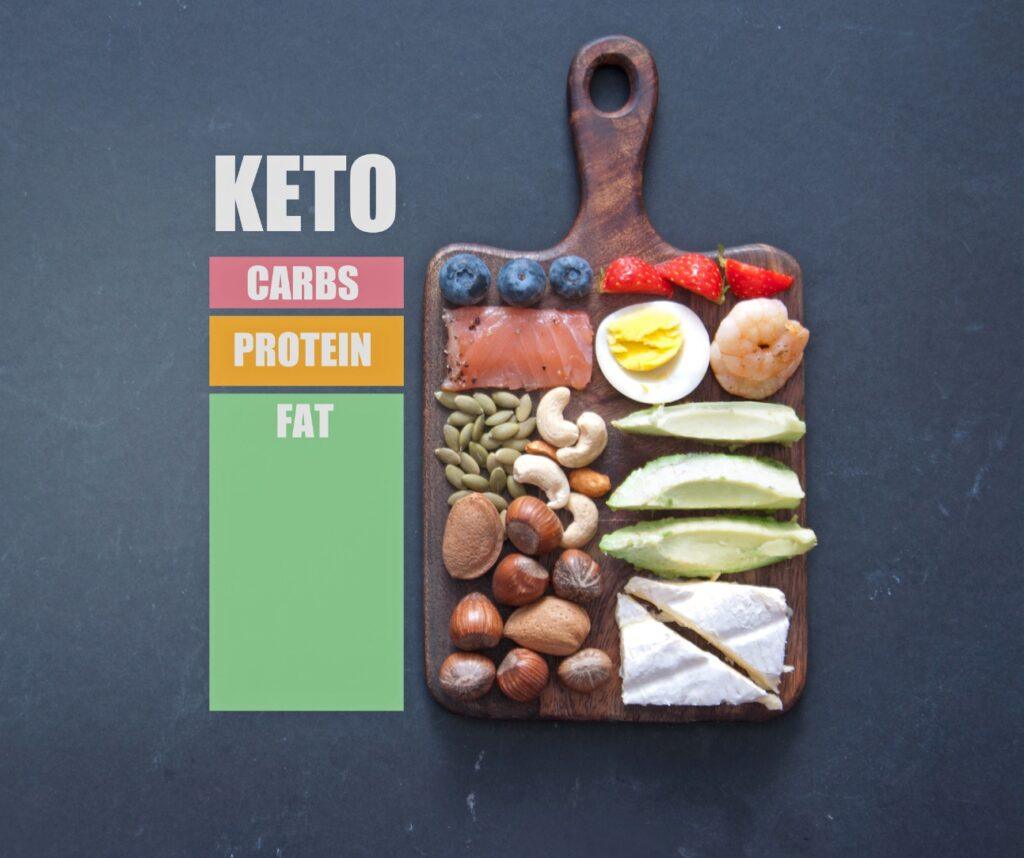
To induce ketosis, the diet promotes healthy fats, moderate protein, and minimal carbohydrates. A ketogenic diet focuses on the consumption of:
- Poultry
- Fish
- Eggs
- Avocados
- Nuts
- Berries
- Low-carb vegetables
Alternatively, the diet mostly avoids foods such as sweets, starchy vegetables, grains, legumes, and fruit other than berries.
However, it is critical to note that a keto diet is not suitable for everyone, for example, individuals with lipid imbalance, kidney stones, and cardiomyopathy. Bramen recommends following this diet under medical supervision to minimize potential risks.
Diet #4: Mediterranean Diets
Mediterranean Diet
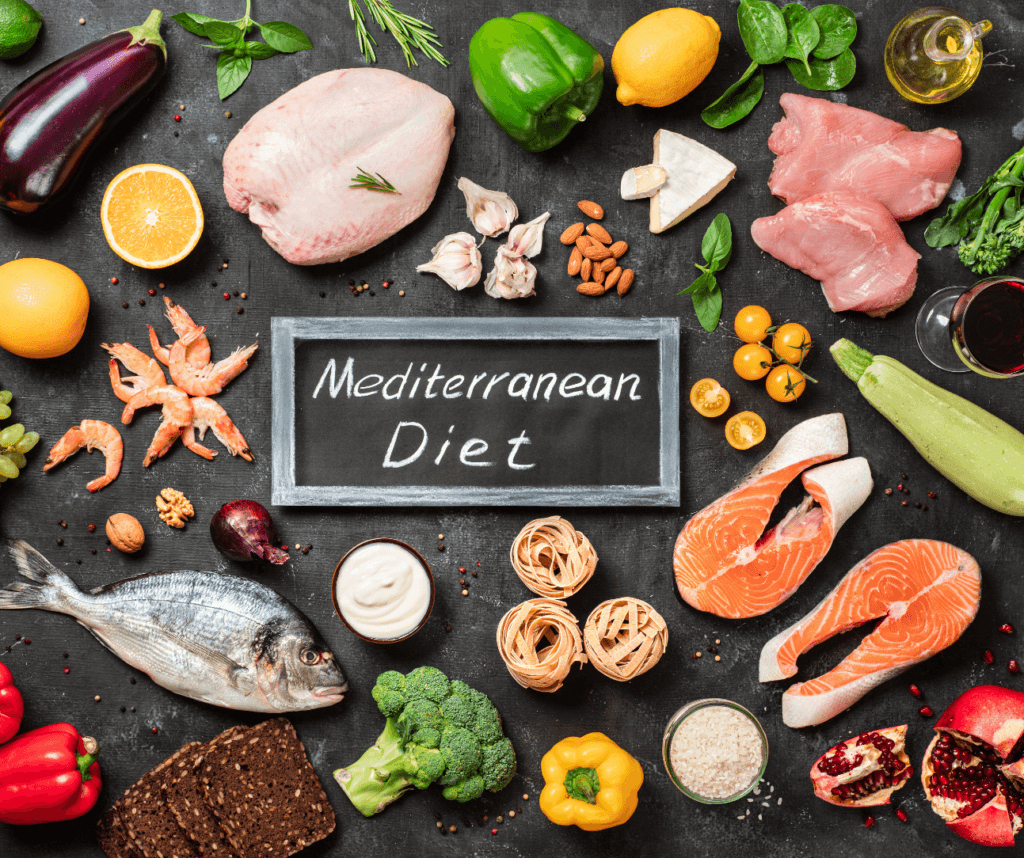
The Mediterranean diet is a dietary pattern based on the traditional eating habits of people in countries bordering the Mediterranean Sea, such as Greece and Italy. This diet emphasizes the consumption of whole foods such as:
- Fruits
- Vegetables
- Whole grains
- Nuts and seeds
- Legumes
- Olive oil
One key benefit of the Mediterranean diet is the high quantity of healthy fats, such as omega-3 fatty acids, which are linked to a lower risk of heart disease, cognitive decline, and certain types of cancer. Rapozo often recommends the Mediterranean diet, citing its numerous health benefits: “There’s a reason the Mediterranean diet ranks #1 year after year. The Mediterranean diet has been shown to reduce the risk of heart disease, diabetes, depression, and frailty in older adults, along with better mental and physical function.”
Mediterranean – DASH Intervention for Neurodegenerative Delay Diet
One distinct version of this dietary pattern is the Mediterranean – DASH Intervention for Neurodegenerative Delay diet, commonly referred to as the MIND diet. This diet emphasizes a tight adherence to Mediterranean diet principles for optimal brain health benefits. According to Scott Kaiser, MD, board-certified family physician and Director of Geriatric Cognitive Health at PNI, the MIND diet allows individuals to eat “highly processed sugary foods less than five times a week because of the potential harms of those refined sugars on brain health and in the potential increased risk of dementia.”
There have been numerous studies conducted to demonstrate the efficacy of the MIND diet. One study found participants who closely adhered to the MIND diet had a 53% reduced rate of Alzheimer’s disease compared to those who did not strictly follow the diet. Another study revealed that adherence to the MIND diet related to a substantial slowing of cognitive decline for an average of five years.
Overall, the Mediterranean and MIND diets are healthy and sustainable ways of eating, suitable for people of all ages and cultural backgrounds. Even so, it is advisable to seek advice from a healthcare professional prior to changing your eating habits.
Optimize Your Health: Nutrition Coaching at Pacific Neuroscience Institute’s Lifestyle Program
Before starting any new diet, it is crucial to evaluate your individual health concerns and objectives. Fortunately, the Lifestyle Program at Pacific Neuroscience Institute® provides evidence-based nutritional education tailored to your unique goals. With the guidance of expert brain health trainers, you will learn how to optimize your diet and nutrition, improve physical fitness, manage stress, and support cognitive wellness.
We recognize that a healthy diet is a long-term lifestyle shift, not a temporary fix. Making small, gradual changes over time can produce significant improvements. Take the first steps toward enhancing your brain health with PNI’s Lifestyle Program. Registration is now open for all our courses.
How to Enroll in the Lifestyle Program
Virtual and in-person sessions are available. To learn more about participation, contact us: lifestyle@pacificneuro.org | 213-344-2037
Useful Links
Related Videos
 Lifestyle Program at PNI
Pacific Neuroscience Institute’s new Lifestyle Program offers a multimodal education approach to optimize brain wellness. Whether you aim to enhance your longevity, stabilize cognitive decline, or receive support after a…
Lifestyle Program at PNI
Pacific Neuroscience Institute’s new Lifestyle Program offers a multimodal education approach to optimize brain wellness. Whether you aim to enhance your longevity, stabilize cognitive decline, or receive support after a…
 Why You Should Eat Tomatoes in September
Did you know that September is the perfect time to enjoy peak season tomatoes? Lycopene, the most abundant carotenoid in ripened tomatoes, is an antioxidant that fights against inflammation and…
Why You Should Eat Tomatoes in September
Did you know that September is the perfect time to enjoy peak season tomatoes? Lycopene, the most abundant carotenoid in ripened tomatoes, is an antioxidant that fights against inflammation and…
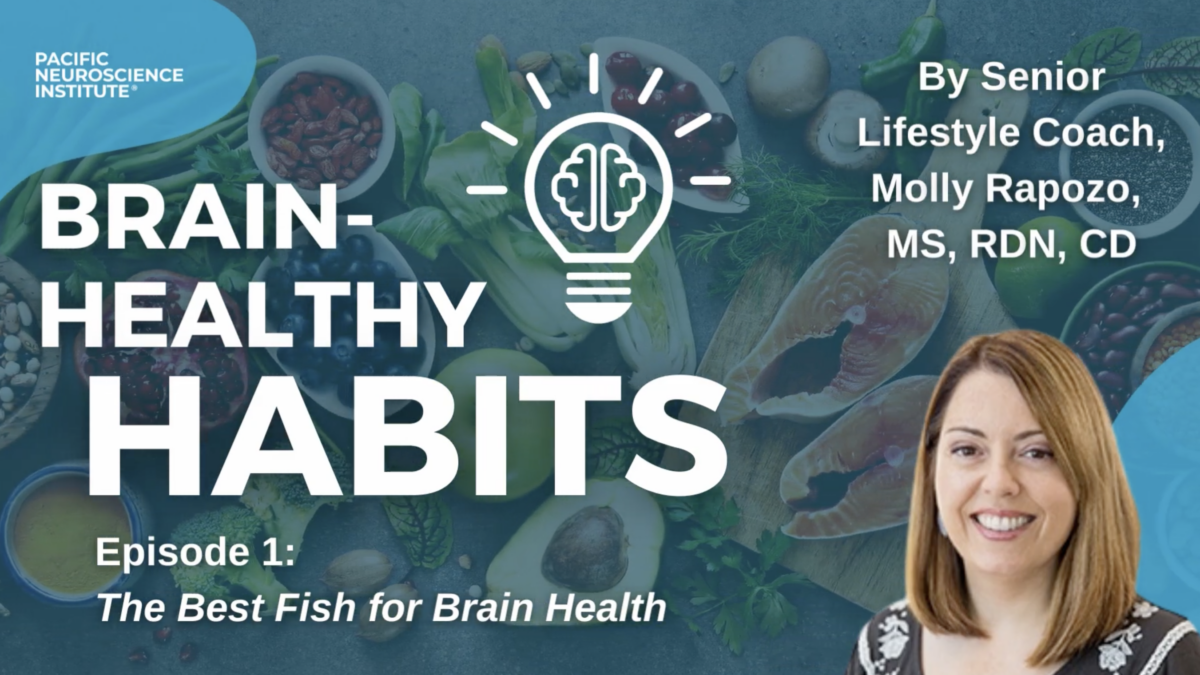 Brain-Healthy Habits Episode 1: The Best Fish for Brain Health
Brain-Healthy Habits Episode 1: The Best Fish for Brain Health
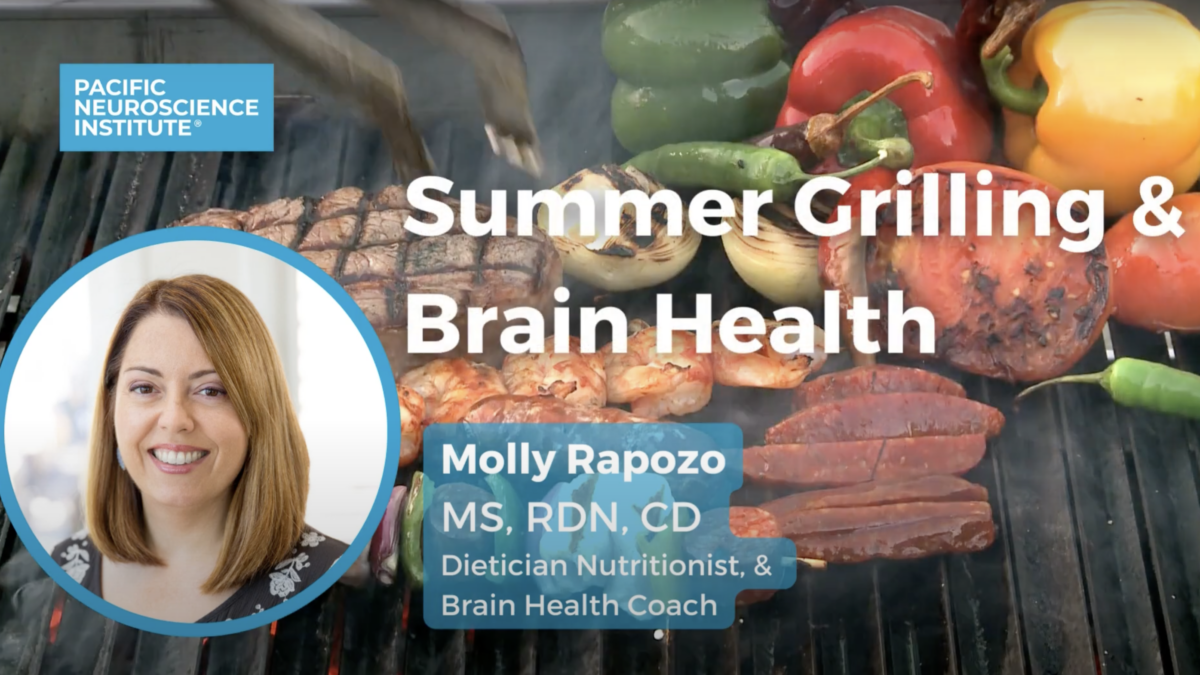 AGEs or Advanced Glycation End Products
AGEs or Advanced Glycation End Products
 A PNI Minute | The MIND Diet for Parkinson’s Disease
A PNI Minute | The MIND Diet for Parkinson’s Disease
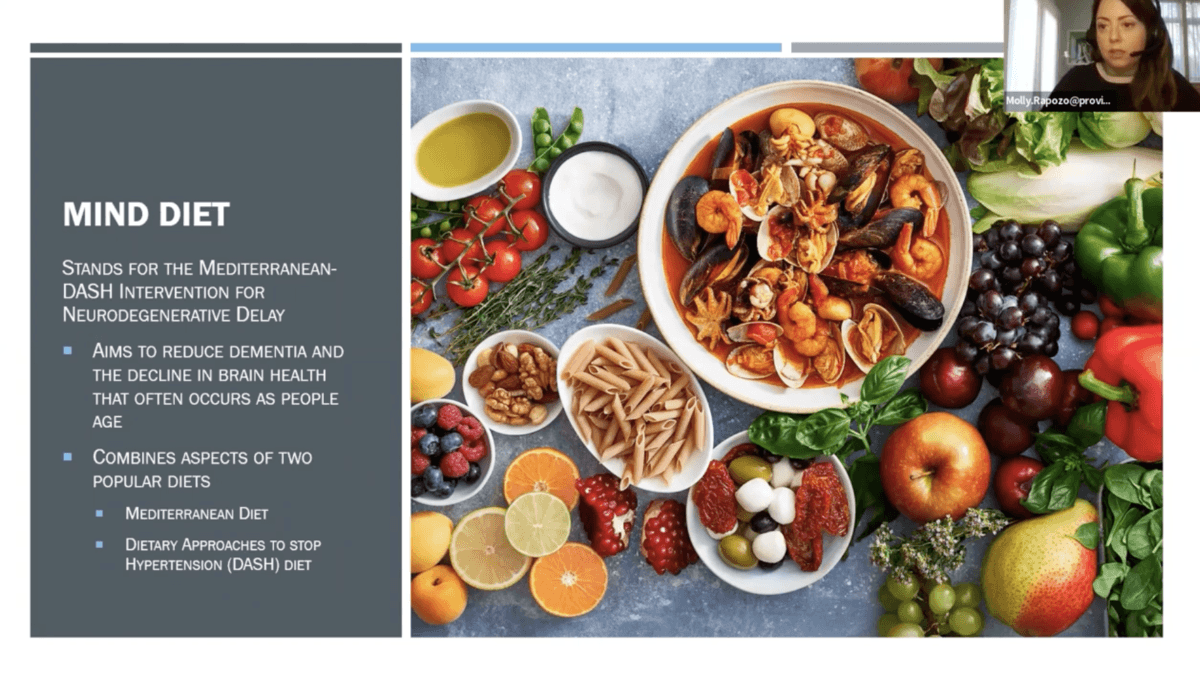 13. Everything Parkinson’s: Brain Boosting Foods for Parkinson’s Disease with Molly Rapozo, MS, RDN
Everything Parkinson’s Webinars: https://www.pacificneuroscienceinstit… Molly Rapozo, MS, RDN, CD, a registered Dietician Nutritionist and Brain Health Coach at the Pacific Brain Health Center, discusses nutrition and food in relation to…
13. Everything Parkinson’s: Brain Boosting Foods for Parkinson’s Disease with Molly Rapozo, MS, RDN
Everything Parkinson’s Webinars: https://www.pacificneuroscienceinstit… Molly Rapozo, MS, RDN, CD, a registered Dietician Nutritionist and Brain Health Coach at the Pacific Brain Health Center, discusses nutrition and food in relation to…

Lifestyle Program at PNI

Why You Should Eat Tomatoes in September
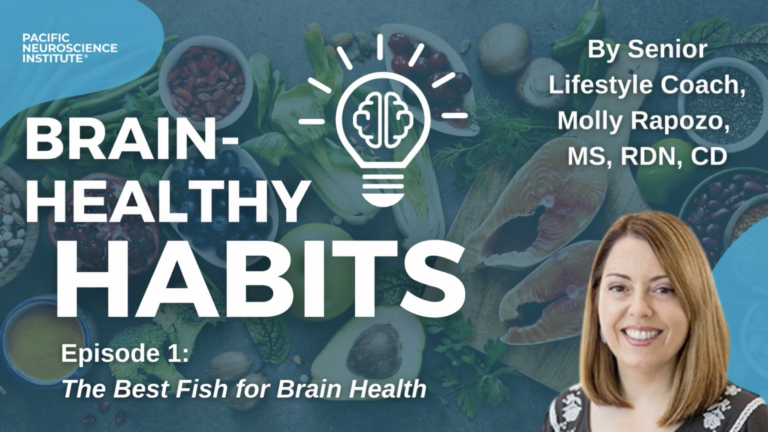
Brain-Healthy Habits Episode 1: The Best Fish for Brain Health
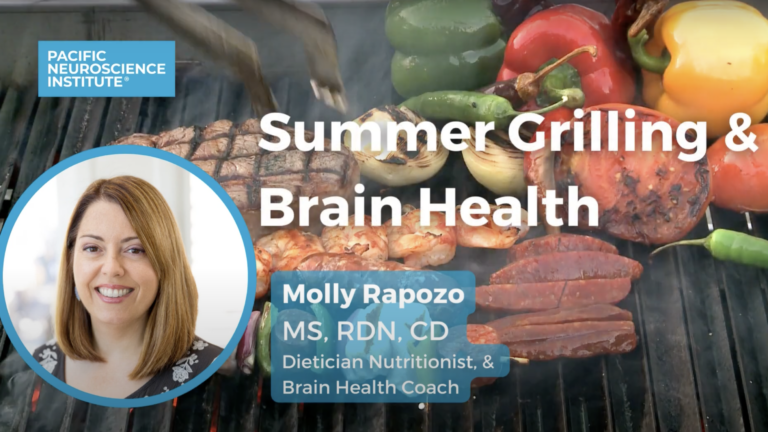
AGEs or Advanced Glycation End Products

A PNI Minute | The MIND Diet for Parkinson’s Disease
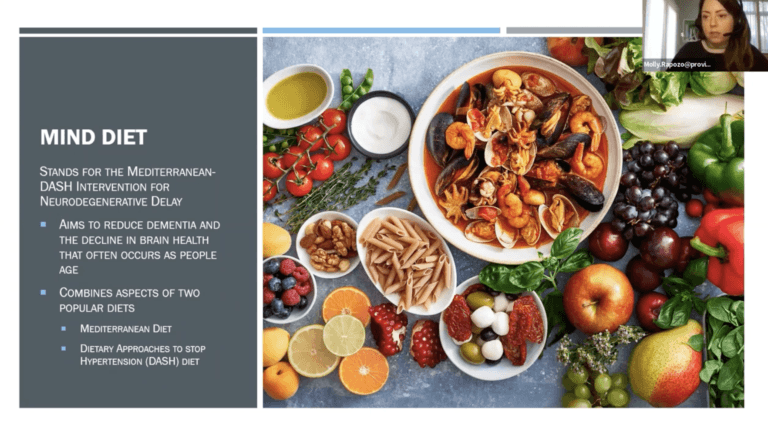
13. Everything Parkinson’s: Brain Boosting Foods for Parkinson’s Disease with Molly Rapozo, MS, RDN
Related Articles
About the Author
Brianna Rauchman
Brianna Rauchman, BA, is the Communications Coordinator for the Lifestyle Program, where she helps develop outreach strategies to connect with an expanding audience. Her responsibilities include providing launch support, developing content, assisting with collateral design, and planning social media strategies.
Last updated: February 1st, 2024






